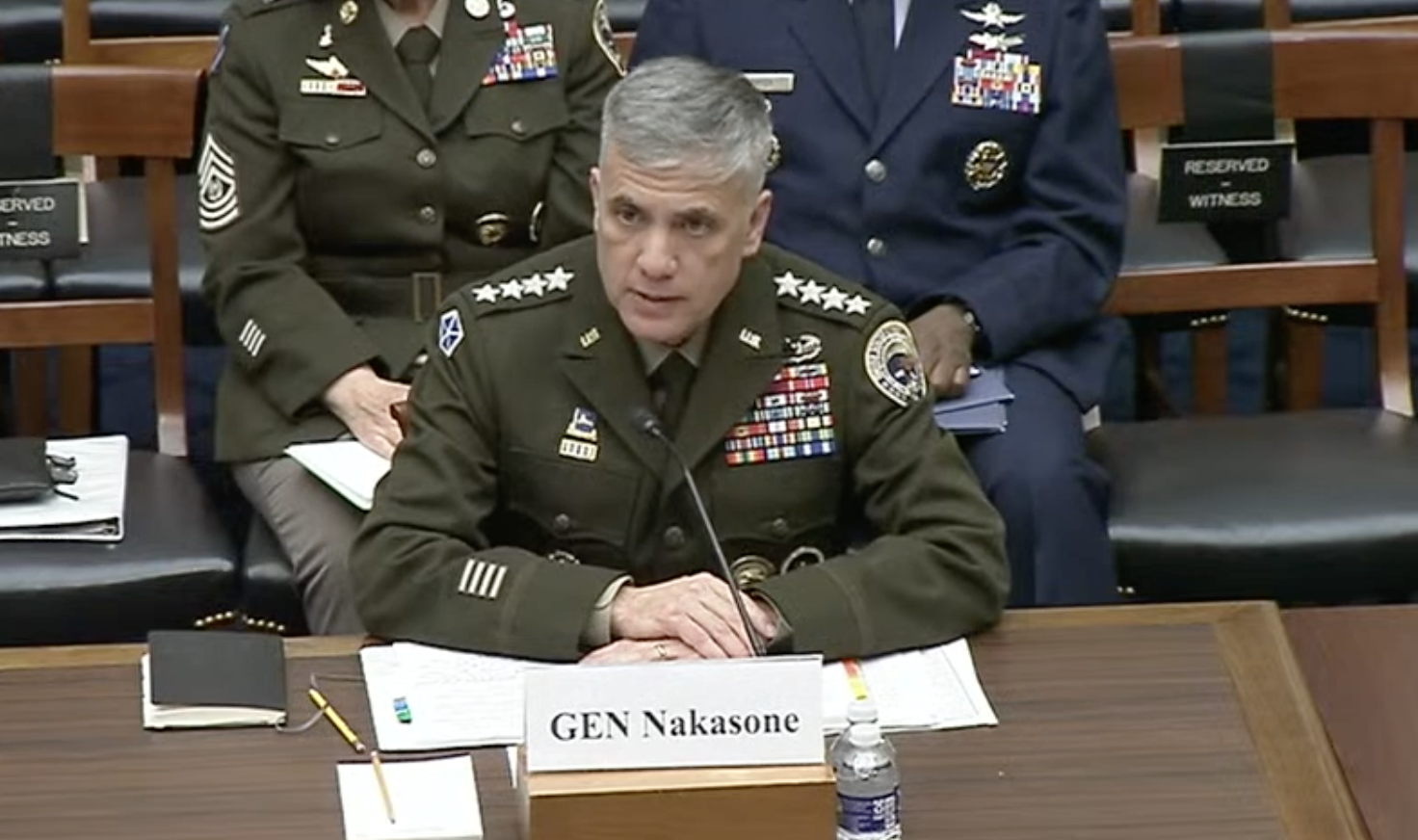Opinion What worries me most after five years as leader of the NSA
People expect me to name a particular country or challenge threatening the United States — maybe China or Russia, or even criminal hackers targeting our critical infrastructure. I have plenty of worries about each of those. What worries me most, though, isn’t an external threat, but the possibility that we are on the verge of making a grave mistake.
I worry that we could make ourselves blind to external threats such as the ones I’ve named and more if Congress allows a critical intelligence collection authority — Section 702 of the Foreign Intelligence Surveillance Act — to expire in April, or renews it with crippling restrictions.
Either move would be a self-inflicted wound that our nation cannot afford.
Let me go back in time to explain. . ."
What is the NSA?
The NSA is the U.S. National Security Agency. Although it ostensibly works to protect U.S. citizens and interests, the NSA monitors every American and the people of many allied countries—all with the backing of the U.S. government and large portions of Congress.
But it’s not only the NSA spying on its own people. Its counterparts at the CIA (Central Intelligence Agency) are also spying on and hacking targets of interest.
Here are ten ways the NSA is still spying on you, right now, according to documents leaked by Edward Snowden and further investigation by the press.
How NSA surveillance works in America
1. The NSA can still access your phone records
In 2018, the NSA acquired data from over 600 million phone calls and text messages. It proceeded to delete many of them, citing “technical irregularities” but didn’t specify how many were expunged from servers. The USA FREEDOM Act, passed in 2015, puts the onus on telecommunication providers to hold on to phone records, after which they can be requested by the NSA rather than the spy agency keeping tabs on them directly.
This has meant that the overall extent of phone records collected by the NSA has gone down—but it’s hard to take their word at face value. After all, it wouldn’t be the first time that the NSA has straight up lied about its surveillance policies.
2. Big Tech passes your data to the NSA
Facebook, Google, Apple, and six other leading online services have all gone on record as having given their customers’ data to the NSA, as legally required by the “PRISM” program. Data shared includes emails, messages, and documents.
3. The NSA can hack your devices
When the NSA finds a security hole in a popular consumer device, it does not fix the security hole, but instead exploits it. The NSA’s hacking unit, Tailored Access Operations, has developed a whole range of hacking exploits. These enable the NSA to break into consumer electronics devices and IT systems as it sees fit.
4. The NSA puts “backdoors” in your devices
The NSA has made the job of hacking security devices easier for itself by coercing many manufacturers to build vulnerabilities into products. The NSA supposedly created new guidelines surrounding this practice after the Snowden revelations but refuses to say what those guidelines are.
If that isn’t enough, the NSA is known to intercept shipments of computers and phones to put “backdoors” on them. The backdoor circumvents security measures of the device, allowing the NSA to spy on the end user.
5. The NSA can track you wherever you are
When you move around town, cell phone towers can calculate your exact position. Though the NSA claims it no longer collects this bulk data itself, cell phone providers are still required to do so, and they, in turn, must surrender those records to the NSA when ordered by a court.
By far the worst aspect of this unwieldy power is that you don’t even have to be the subject of an inquiry yourself. The data of millions can be handed over, without notice, because you had even the most tangential connection to a person under surveillance.
How the NSA spies on you overseas
6. The NSA has tapped internet lines worldwide
The internet connects different continents via undersea fiber optic cables that carry staggering amounts of data. In some places, the NSA has deals with local intelligence agencies to tap into these cables; in others, it does so on its own. The NSA even uses submarines to attach snooping bugs to wires deep beneath in the ocean.
7. The NSA hacks foreign companies
In Brazil, Germany, and other countries, the NSA has broken into the internal networks of major telecommunications providers, intercepting the data they gather and weakening the security of their systems. It collects every email and phone call it can.
8. The NSA knows everything you own and buy
Through agreements and hacking, the NSA can access credit card networks, payment gateways, and wire-transfer facilities around the world. This monetary surveillance allows the NSA to follow every cent of your money and know where it comes from and what you spend it on.
9. The NSA spies on foreign leaders
Another revelation in the Snowden documents was that the NSA asks senior officials in the White House, State Department, and Pentagon to share personal information they have on foreign leaders.
The leaked memo revealed that over 200 confidential phone numbers were handed over to the NSA, which proceeded to tap their conversations. The NSA didn’t spare countries friendly to the U.S. either, with German leader Angela Merkel also one of the ones targeted.
10. The NSA can spy on tracking cookies
Cookies, or small packets of data that relay location history and used to serve you with targeted ads, have also been collected by the NSA. The spy agency has honed in on them to identify users around the world as prime hacking targets.
Protect yourself from NSA surveillance
While NSA surveillance extends across the globe, there is still a lot you can do to safeguard your internet privacy. Check out this list of top privacy tips and always be conscious of what you’re sharing, with whom you’re sharing, and how you share it.
ExpressVPN









No comments:
Post a Comment